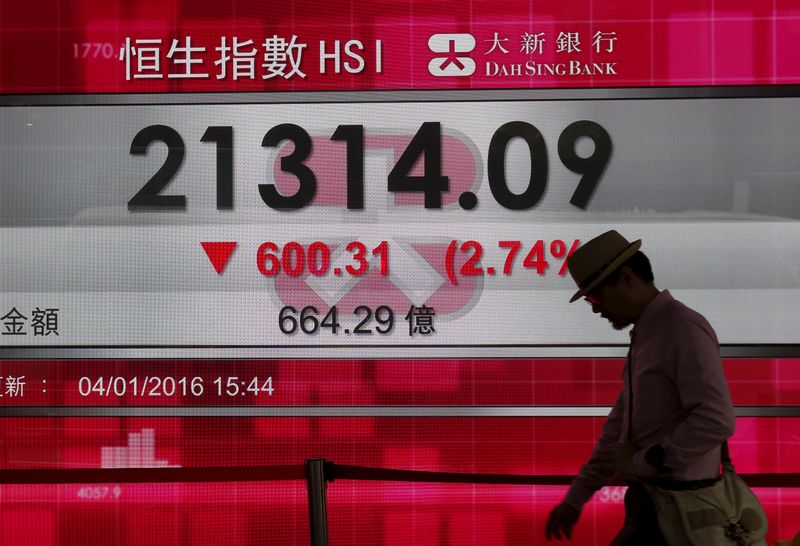By Ambar Warrick
Investing.com -- Asian stock markets retreated on Thursday as bank shares faced renewed selling on fears of a global borrowing crisis, although an upbeat outlook on the Chinese economy helped limit losses in some regional markets.
Regional stocks also trimmed some losses after beleaguered Swiss lender Credit Suisse Group AG (SIX:CSGN) said it will borrow up to $54 billion from the Swiss National Bank to support liquidity, which helped ease concerns over an imminent banking collapse.
China’s Shanghai Shenzhen CSI 300 and Shanghai Composite indexes fell the least among their Asian peers, losing 0.5% each after investment bank Goldman Sachs hiked its economic growth outlook for the country to 6% from 5.5%.
The bank cited improving trends after the country reopened from three years of COVID lockdowns, and said that Asia’s largest economy was primed for a rebound this year. This, coupled with recent data that showed a steady, albeit mixed economic recovery in the country, helped spur some optimism.
But China was a relatively bright spot in an otherwise largely negative market. Hong Kong’s Hang Seng index slid 1.5% as a rout in bank stocks spilled over into technology, while the Taiwan Weighted index and South Korea’s KOSPI lost 1.1% and 0.3%, respectively.
Japan’s Nikkei 225 index was also among the worst performers for the day, losing 1.1% with major financial stocks facing renewed selling pressure. Dai-ichi Life Holdings Inc (TYO:8750), Sumitomo Mitsui (NYSE:SMFG) Financial (TYO:8316) and T&D Holdings Inc (TYO:8795) were among the worst performers on the Nikkei, losing between 5.8% and 7%.
Australia’s ASX 200 index also sank 1.5% on losses in the country’s big four bank stocks. A stronger-than-expected employment reading for February also pushed up concerns over more interest rate hikes by the Reserve Bank.
While a rout in Asian markets had briefly paused on Wednesday, renewed concerns over a global banking crisis, triggered by a rout in the shares of Credit Suisse, saw markets resume their descent on Thursday.
Investors largely pivoted out of risk-heavy assets and into safe havens such as gold and the dollar. Uncertainty over the path of U.S. monetary policy also weighed, following signs that core consumer inflation remained sticky in February.
Philippine shares led losses across risk-heavy Southeast Asian markets with a 1.6% fall, while India’s Nifty 50 and BSE Sensex 30 indexes fell 0.6% each.
Data on Wednesday showed that India's trade deficit unexpectedly shrank in February, aided largely by a dip in oil prices.
